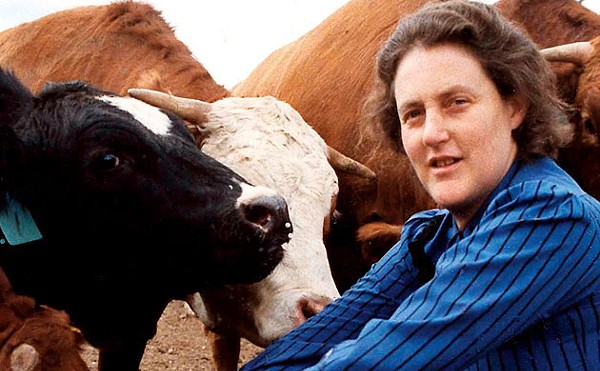Autism Advocacy: How Temple Grandin Conquered Her Diagnosis
Autism advocacy and awareness has received a boost in the U.S. in recent years. There has also been an alarming rise in autism diagnoses. According to the Centers for Disease Control, 1 in 88 children will be diagnosed with autism spectrum disorder (ASD) by the age of 8. Although we know more about autism than ever before, much still remains a mystery. Many parents would give anything to be able to communicate with their nonverbal children and ask them how they perceive the world around them. This is one of the many reasons why Temple Grandin is such an influential hero in the autism community.
Autism Advocacy
In the mid-1980s, Temple Grandin attended a conference of the Autism Society of America (ASA). She was approached by one of the founders of the organization and was invited to speak at the conference the following year. Although it was her first time speaking, Temple Grandin’s performance was comparable to that of a professional keynote speaker. She was incredibly effective. She was able to answer questions from parents desperate to learn about how their autistic children perceived the world and why they acted the way that they did. Temple Grandin continues to share her experiences and insights during her many public appearances. She has also appeared in at least three documentaries, and has been the subject of a semi-biographical film, Temple Grandin.
Temple Grandin’s Childhood
In the 1940s and ‘50s, very little was known about autism spectrum disorder. Autism advocacy was unheard of. Even through the 1970s, clinicians were using “treatments” like electric shock therapy and LSD on autistic children. Fortunately for Temple Grandin, her mother, Eustacia Cutler, was determined to help her. Without an early intervention program to support her, Eustacia found teachers, a speech therapist, and an excellent nanny for Temple.
Temple Grandin’s Treatment Program
Although applied behavioral analysis (ABA) didn’t exist then, Temple’s speech therapist worked with her on a similar type of therapy for three hours per week. The speech therapist broke tasks down into simpler components and drilled Temple until she mastered them. In particular, the speech therapist was meticulous about articulating hard consonant sounds carefully. Speech-language pathologists (SLPs) often use drilling techniques for articulation practice to encourage children to produce specific sounds.
Temple Grandin also attended a nursery school class for special needs children. Although none of the other children were autistic, several had Down syndrome. Temple didn’t share the specifics of her instruction at the nursery class, but she did note that the class was quite structured, which is beneficial for autistic children.
Eustacia also found a highly motivated nanny for her daughter. For about 20 hours per week, Temple Grandin’s nanny practiced social skills and turn-taking games with her. Temple and her sister would practice taking turns with a sled, for example. Day-to-day activities were always turned into learning activities. Temple also enhanced her skills with art projects. Additionally, Temple’s mother allowed her to engage in her autistic behaviors for one hour every day, during which she might spin objects repetitively. The rest of the day, Temple understood that she was expected to communicate and practice her social skills.
These speech therapy techniques and social skills lessons transformed Temple Grandin from a nonverbal child into a highly skilled communicator. Temple even earned her Ph.D. in animal science and has been a champion of autism advocacy.
Temple Grandin’s Advice for Parents
In one of Temple Grandin’s books, “The Way I See It,” she stresses that one of the most important things a parent of an autistic child can do is to get help for the youngster immediately. She urges parents not to take the “wait and see” approach, because early intervention is critical for best outcomes. In addition to taking your child to a speech therapist and other specialists, Temple Grandin advises parents to do activities at home, such as turn-taking games.



